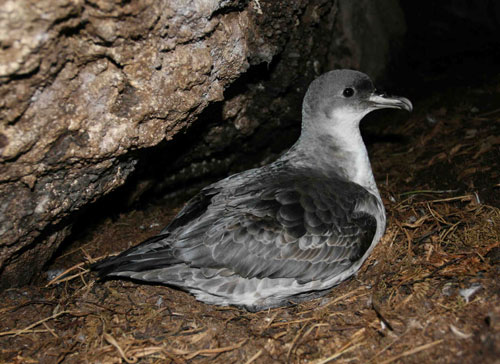The project will utilize existing long-term datasets and collect new field data to track changes in the presence, distribution and abundance of burrow-nesting seabirds and to assess how this seabird community has responded to the eradication of feral vertebrates and their role in the broader ecosystem recovery after decades of feral animal impacts.
The research is part of a larger project aimed at the development of an optimal long-term monitoring strategy for key threatened species on the island and the island ecosystem as a whole. The student will investigate the conservation return on investment of the eradication and inform decision-making strategies around threatened species monitoring and conservation.

Grey Petrel, photograph by Peter Ryan
The student will be part of the Threatened Species Recovery Hub, National Environmental Science Programme and will work in conjunction with Dr Justine Shaw and Professor Hugh Possingham (Centre of Biodiversity and Conservation Science, The University of Queensland) and Dr Rachael Alderman (Department of Primary Industry, Parks Water & Environment, Tasmania).
For details go to the link.
Applications should include a motivation letter and a short CV and sent to
John Cooper, ACAP Information Officer, 04 April 2016

 English
English  Français
Français  Español
Español